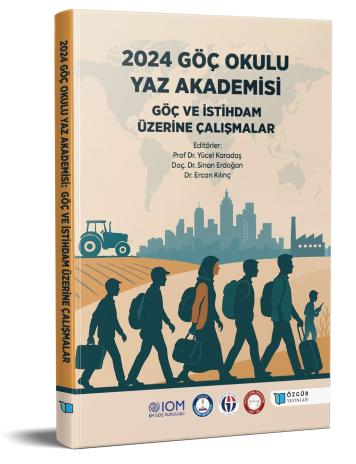
Online Social Networks as a Social Capital in Forced Migration
Chapter from the book:
Karadaş,
Y.
&
Erdoğan,
S.
&
Kılınç,
E.
(eds.)
2025.
2024 Migration School Summer Academy -Studies on Migration and Employment.
Synopsis
Online social networks used in this research as an encompassing meta-concept in this study refer to internet-based platforms such as Facebook, Instagram, and TikTok, as well as instant messaging applications like WhatsApp, Telegram, and Viber.
Existing research on online social networks concerning migration primarily focuses on the initial two phases of the migration process, which are the pre-migration and migration phases. Building on this, the study specifically seeks to understand the role of online social networks during the final and longest phase of migration, the post-migration phase, with a focus on how these networks contribute to economic resource access.
The methodology of the study is a literature review and descriptive evaluation of documents. In this context, it was aimed to develop an understanding of the issue through reports of international organizations (UNHCR, GSMA and ITU) and official news source (The Guardian).
The findings reveal that refugees benefit from online social networks in two key ways in the context of accessing economic resources: as a method for job searching and as a source of livelihood.

